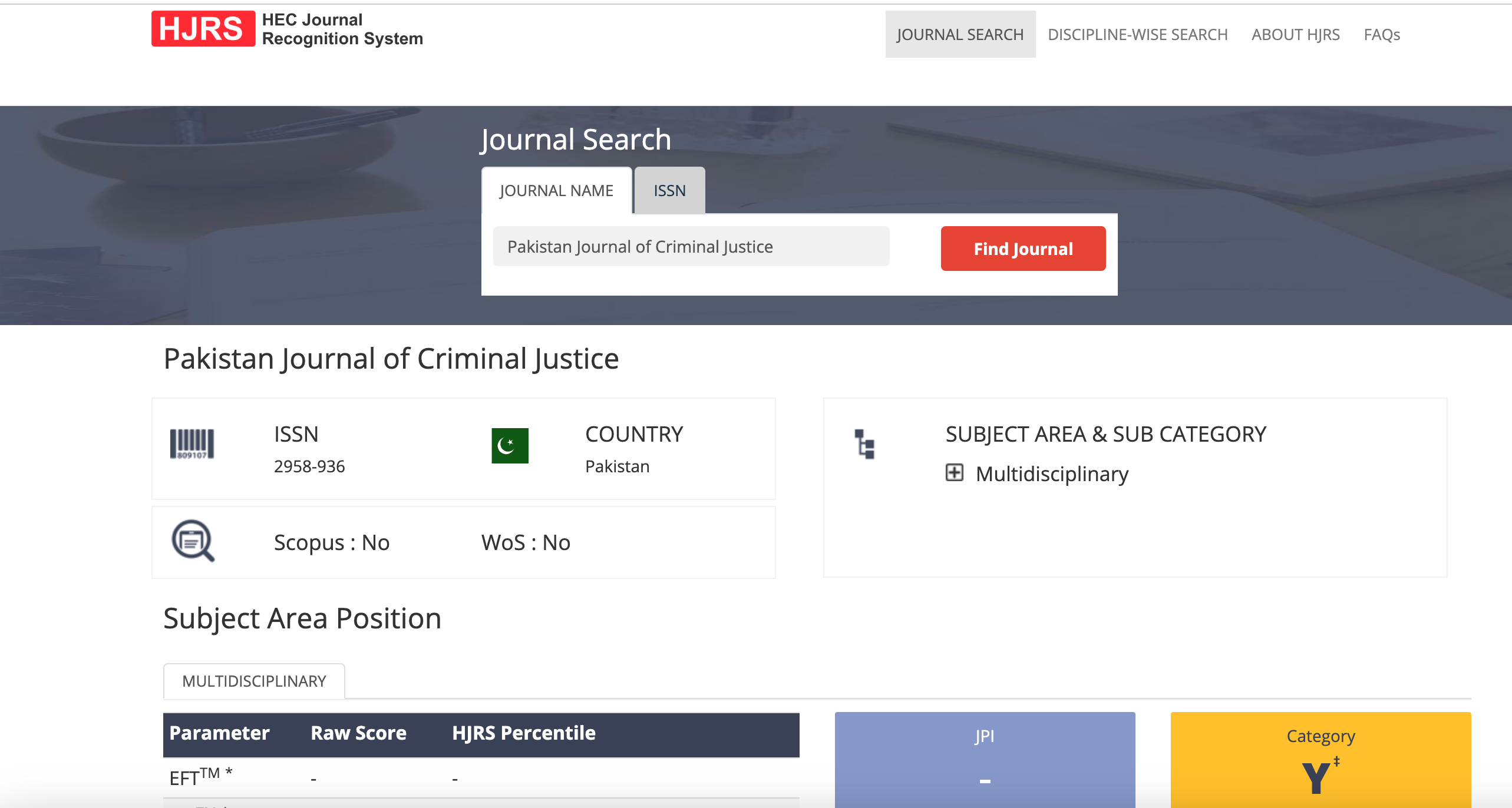Comparative Analysis of the Rule of Law: Perspectives from India and Pakistan
DOI:
https://doi.org/10.62585/pjcj.v4i1.89Keywords:
rule of law, comparative law, judicial independence, access to justiceAbstract
This research paper thoroughly compares the legal systems in Pakistan and India, looking at important issues such as constitutionalism, judicial independence, access to civil justice, and fundamental rights. The study uses legal frameworks and historical backgrounds to assess the effectiveness and implementation of the rule of law in both nations. India's judicial supervision procedures and democratic system are contrasted with Pakistan's historical struggles, which include military control and constitutional uncertainties. The judiciary's role in preserving the rule of law through the protection of fundamental rights and constitutional interpretations is discussed in this article. The study provides an analysis of the constitutional principles, legal institutions, and societal ramifications, highlighting the advantages, disadvantages, and current initiatives aimed at enhancing the rule of law in Pakistan and India.
Downloads
Published
How to Cite
Issue
Section
License
Copyright (c) 2024 Imtiaz Hussain, Rao Imran Habib

This work is licensed under a Creative Commons Attribution-NonCommercial 4.0 International License.





